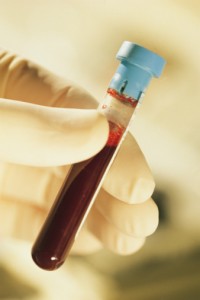By Susan Brinkmann, OCDS
Staff Journalist
A blood test that allows parents to know the sex of their unborn child as early as seven weeks into a pregnancy is causing concern over how the test could be used.
 Reuters Health is reporting that the test, already in use in Europe, involves analyzing the blood of expectant mothers for evidence of the male sex chromosome. It is known to be highly reliable in determining the sex of a baby much sooner than conventional ultra-sounds. The test is used to detect sex-linked genetic disorders, thus sparing the need for more invasive and potentially risky tests.
Reuters Health is reporting that the test, already in use in Europe, involves analyzing the blood of expectant mothers for evidence of the male sex chromosome. It is known to be highly reliable in determining the sex of a baby much sooner than conventional ultra-sounds. The test is used to detect sex-linked genetic disorders, thus sparing the need for more invasive and potentially risky tests.
“It could reduce the number of invasive procedures that are being performed for specific genetic conditions,” said Dr. Diana Bianchi of Tufts University School of Medicine, who worked on a new study of the test which was published in the Journal of the American Medical Association.
Parents only other option is an amniocentesis, which involves taking a sample of the fluid from the amniotic sac, or chorionic villus sampling which extracts fluid from the placenta. There is a one in 100 chance of miscarriage associated with amniocentesis, and a one in 600 chance of miscarriage with chorionic villus sampling.
“What they are finding in England is that many women are not going on to have the invasive tests,” Bianchi told Reuters Health.
The accuracy of the blood test is also promising. Bianchi and her colleagues analyzed 57 earlier studies that involved more than 6,500 pregnancies and found that the test was reliable 98.8 percent of the time when it said parents could expect a boy, and 94.8 percent of the time when it indicated a girl.
However, the test is not yet available in the U.S., mostly due to ethical concerns over how it could be used to terminate a pregnancy if a baby isn’t of the desired sex.
“What you have to consider is the ethics of this,” said Dr. Mary Rosser, an obstetrician and gynecologist at the Montefiore Medical Center in New York.
“If parents are using it to determine gender and then terminate the pregnancy based on that, that could be a problem,” she told Reuters Health. “Remember, gender is not a disease.”
Rosser said it’s a great test, “but it should only be used by families that are at risk for sex-linked diseases.”
© All Rights Reserved, Living His Life Abundantly®/Women of Grace® http://www.womenofgrace.com









